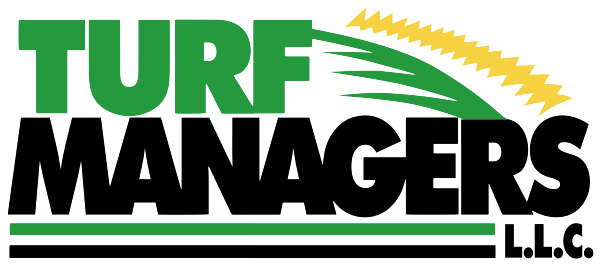During the hot summer months, the beautiful shading canopy of leaves above your yard is a welcome respite from the sun. But autumn is on its way, and those cooling leaves will soon fall on the grass. So, now you’re faced with the annual dilemma: to rake or not to rake? For most people, the real question is actually, can fall leaves damage my yard? At Turf Managers, we are happy to share our knowledge as you make the decision regarding what’s right for you.
The short answer to the question of whether or not leaves can damage your yard is: yes… and no. So… maybe? Helpful, right? Let’s dive a bit deeper into what leaves do to the yard, the benefits and risks of leaving them versus raking, and when to do it.
Reasons Not to Rake Fall Leaves
Fallen leaves, by their very nature, begin to break down. (In fact, they already have, which is why they turned brown and fell in the first place.) Because they are dry and light, they are easily blown by the breeze. This makes them less prone to do damage to the yard. And fallen leaves are a free source of nutrients to nourish the grass and soil of the garden. Leaves also provide an ideal winter environment for helpful critters, such as beneficial insects, earthworms, chipmunks and other wildlife.
Reasons to Rake Fall Leaves
Next, are the reasons to rake. One reason many people choose to rake is simple aesthetics. Raked yards look well-kept, even in the fall and winter months, as the color of the grass begins to change. Leaving the yard unraked may invite pests and fungal disease, though they are not high risks. If you have a large tree or lots of trees, the sheer quantity of leaves may allow them to compact and clump, blocking air and light. If not removed, you may face dead spots or bare patches in the spring that require reseeding or resodding. Finally, wet leaves can become a slippery hazard.
Other Options
Raking is only one way to handle the fallen leaves in your yard. Your other options include:
- Mow. Instead of raking all the leaves, mow over them without collecting them in a bag or bin. This helps jumpstart the process of breaking down into nutrients, preventing large leaves from blocking air and light or becoming a wet hazard.
- Mulch. You can use the leaves for free fall mulching to lay down a warm layer for your gardens, feeding them and preventing weeds all winter long.
- Compost. Maybe you’ve opted to rake the leaves but you don’t want to bag or discard them. No worries! Composting them is a great option. Making a compost pile in an unused corner of the yard gives you a great source of nutrients. Take from the bottom layer to infuse nutrients into your soil for springtime planting. Use the dry top layer as mulch.
Let Turf Managers Handle Your Leaves This Fall
For more guidance on your particular raking and leaf questions, contact Turf Managers. Call now at 615-269-7706 for a consultation. Let’s get you on the calendar for fall yard clean-up! Email us at helpdesk@turfmanagersllc.com for pricing and scheduling.
Photo by michael podger on Unsplash


